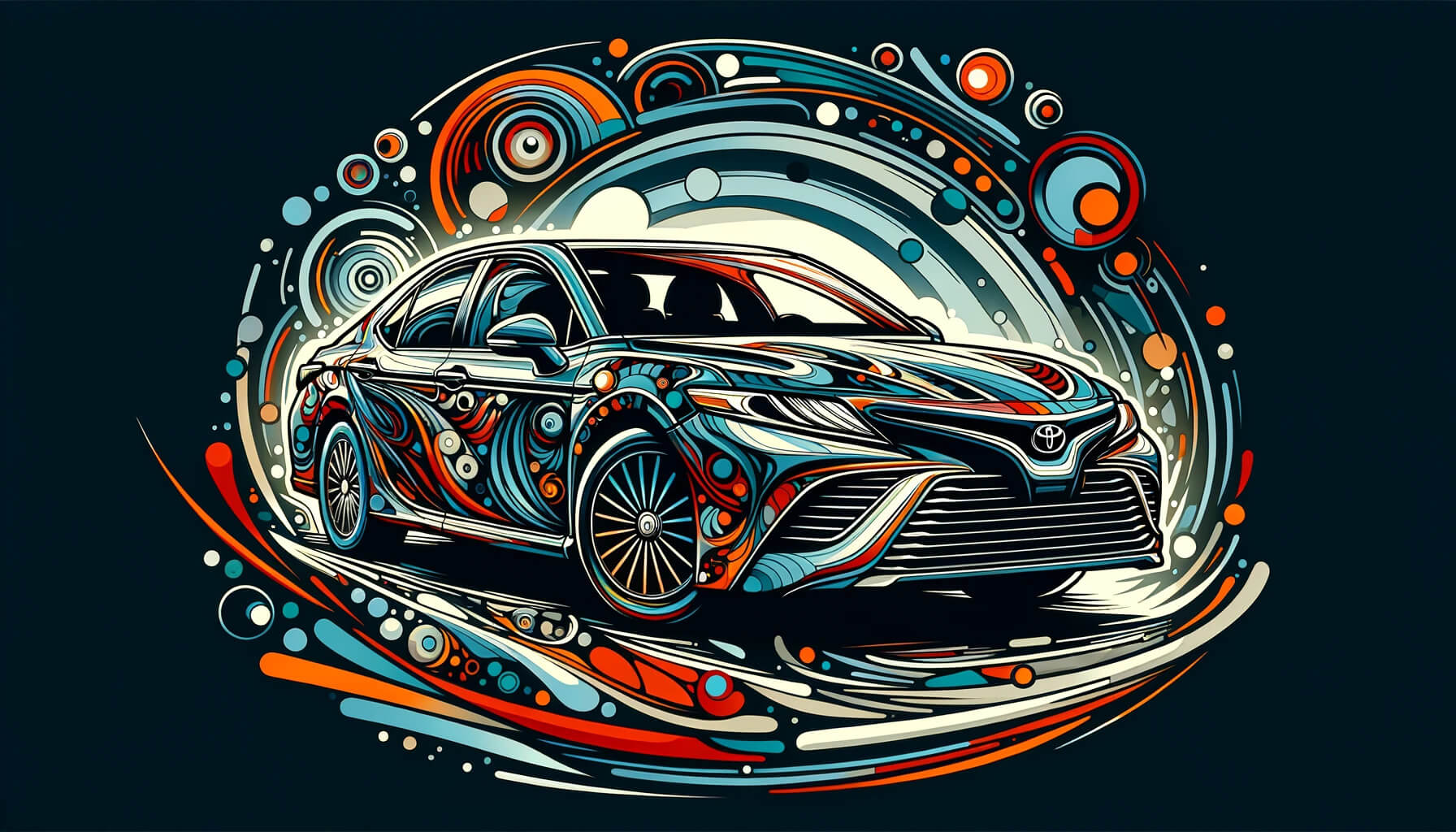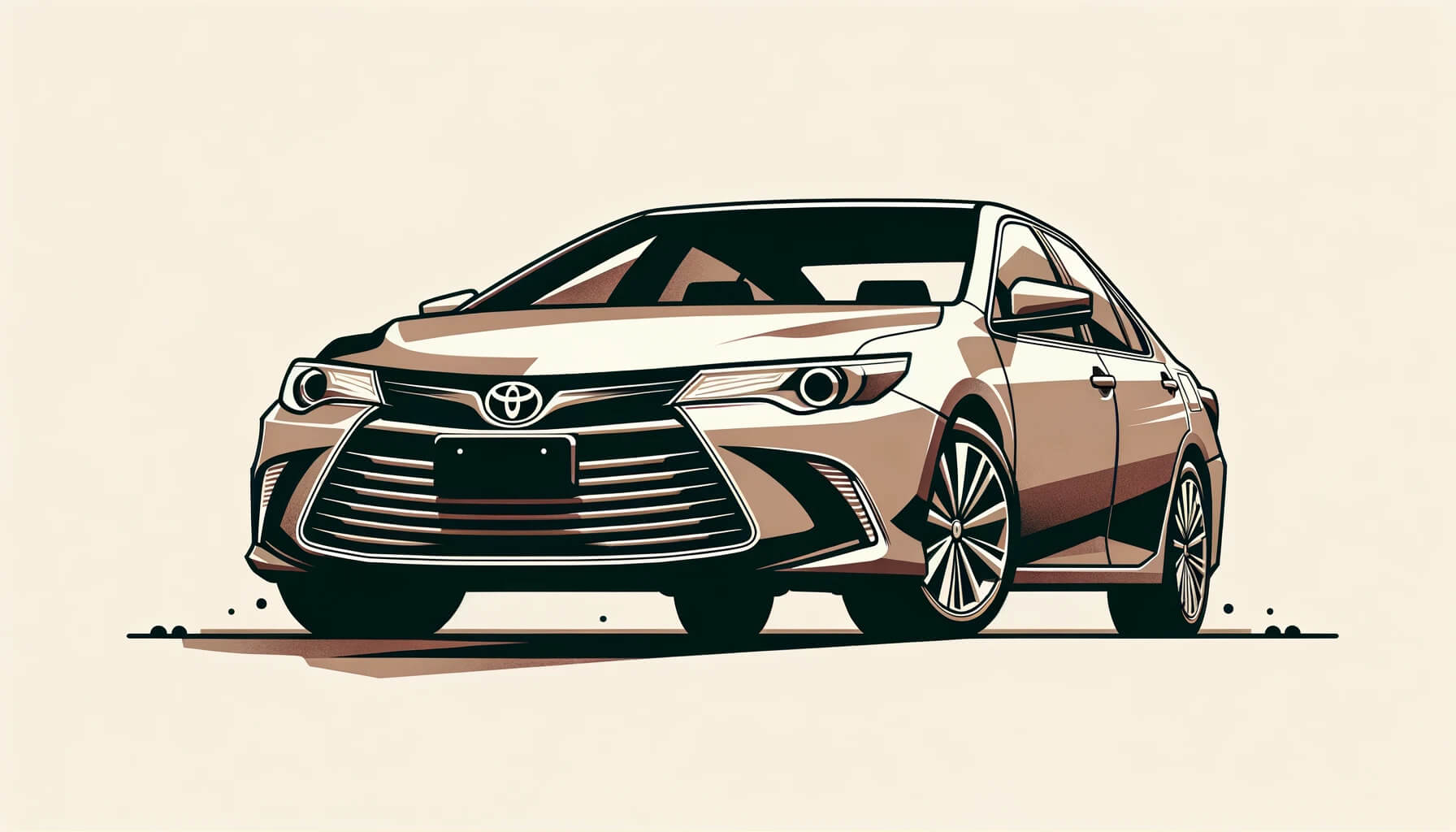Hello there! Anar here, and today I’m thrilled to bring you into the dynamic world of car auctions in the USA. Whether you're a seasoned bidder or a newbie looking to land a great deal on your next car, this blog post is designed just for you. We’re going to explore everything from the basics of car auctions to expert strategies that can help you succeed.
Explore
LATEST IN BLOG
- Winning at USA Car Auctions: Essential Tips and Strategies 11 June 2024
- Unbeatable Deals on Auto Services and Parts at Pep Boys - June 2024 09 June 2024
- Complete Guide to Car History Checks: Carfax, AutoCheck & More 02 June 2024
- Exclusive Military Discounts on Auto Parts at CARiD 01 June 2024
- Why Carid.com Is My Go-To for Reliable Auto Parts 30 May 2024
What is the Most Recommended Year for a Used Toyota Camry (V6)?
Choosing the right year for a used Toyota Camry V6 can greatly influence your satisfaction and the car's longevity. This guide delves into the most recommended model years for the Toyota Camry V6, highlighting the key benefits and considerations that make them standout choices for used car buyers. Join us as we explore what makes these specific years the best investment for your next vehicle.
Author: Car Parts Expert
Introduction
Choosing a used car can be challenging, especially with a popular model like the Toyota Camry. Known for its reliability, efficiency, and excellent value retention, the Camry has been a customer favorite for decades. However, not all model years are created equal, particularly when considering the V6 versions, which offer more power and a different driving experience than their 4-cylinder counterparts. This comparative analysis aims to guide potential buyers in selecting the best used Toyota Camry V6 between the years 2011, 2017, and 2021. These models are chosen for their distinct qualities, balancing Toyota’s reliability with varied features and driving experiences.
Overview
The Toyota Camry has built a longstanding reputation for durability and reliability, making it an intelligent choice in the used car market. This article explores the Camry's model years from 2011 to 2021, highlighting those that excel in mechanical reliability, owner satisfaction, and cost of maintenance. The analysis draws from automotive sources, consumer reports, and owner testimonials to help you make a sound investment. The 2011, 2017, and 2021 Camry models are particularly noteworthy for their superior build quality, advanced features, and positive consumer feedback. These three years combine Toyota’s traditional values of low running costs and longevity with modern design and technology, ensuring that buyers get the most out of their purchase.
Detailed Analysis
When exploring the used Toyota Camry V6 market, focusing on specific model years can significantly affect your purchasing decision. The 2011, 2017, and 2021 Camry V6 models stand out for their performance, reliability, and unique features. Here’s an in-depth look at what makes these models preferred choices:
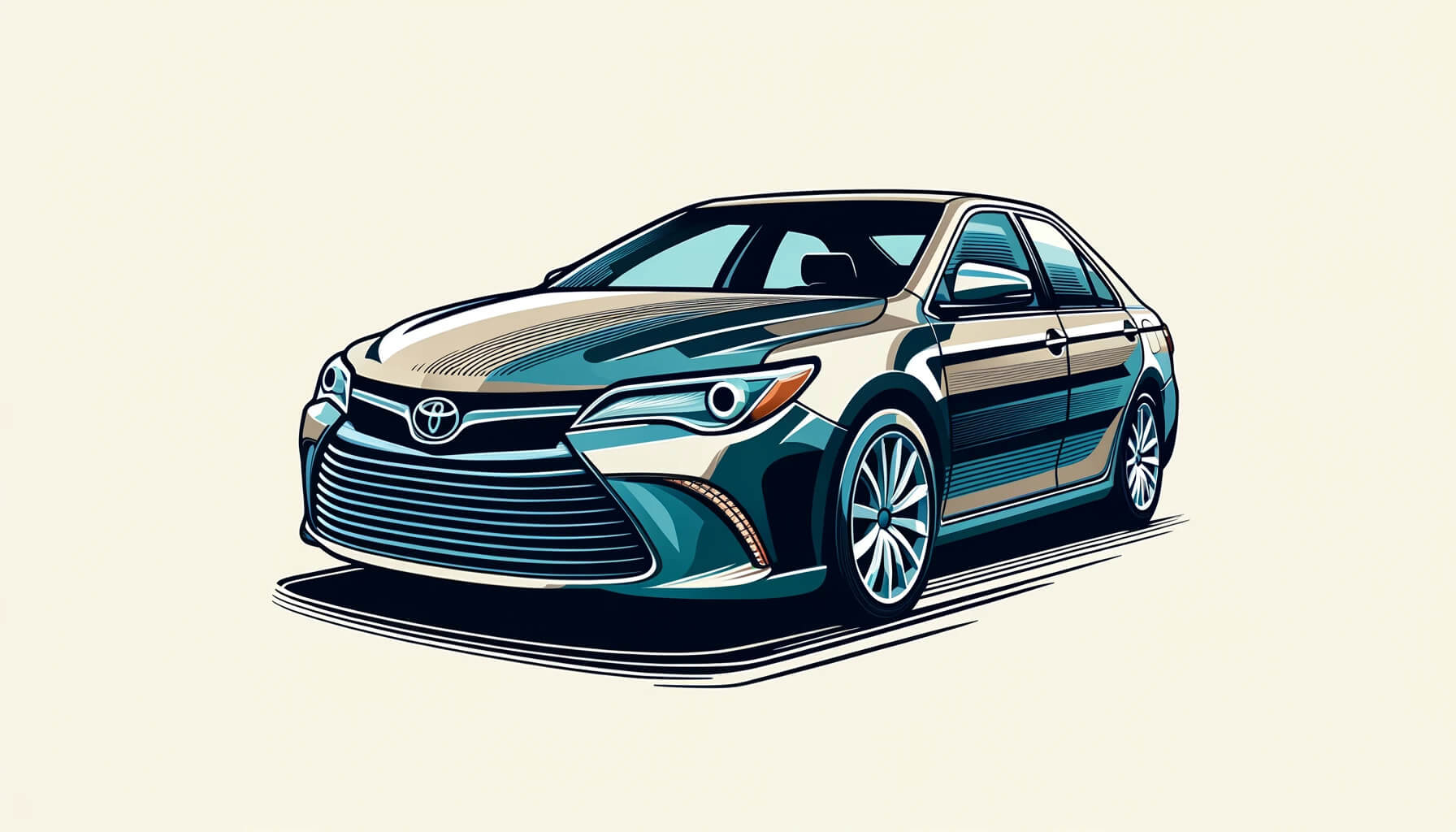
2011 Toyota Camry V6 The 2011 Camry marks the end of its sixth generation, praised for its robust performance and reliability. This year brought a new engine variant and subtle cosmetic updates, enhancing its appeal without straying from the Camry's conservative design ethos. The model is renowned for its smooth ride and efficient V6 engine, offering ample power and respectable fuel economy. It is often celebrated for its solid build quality and minimal mechanical issues, making it a reliable choice for used car buyers.
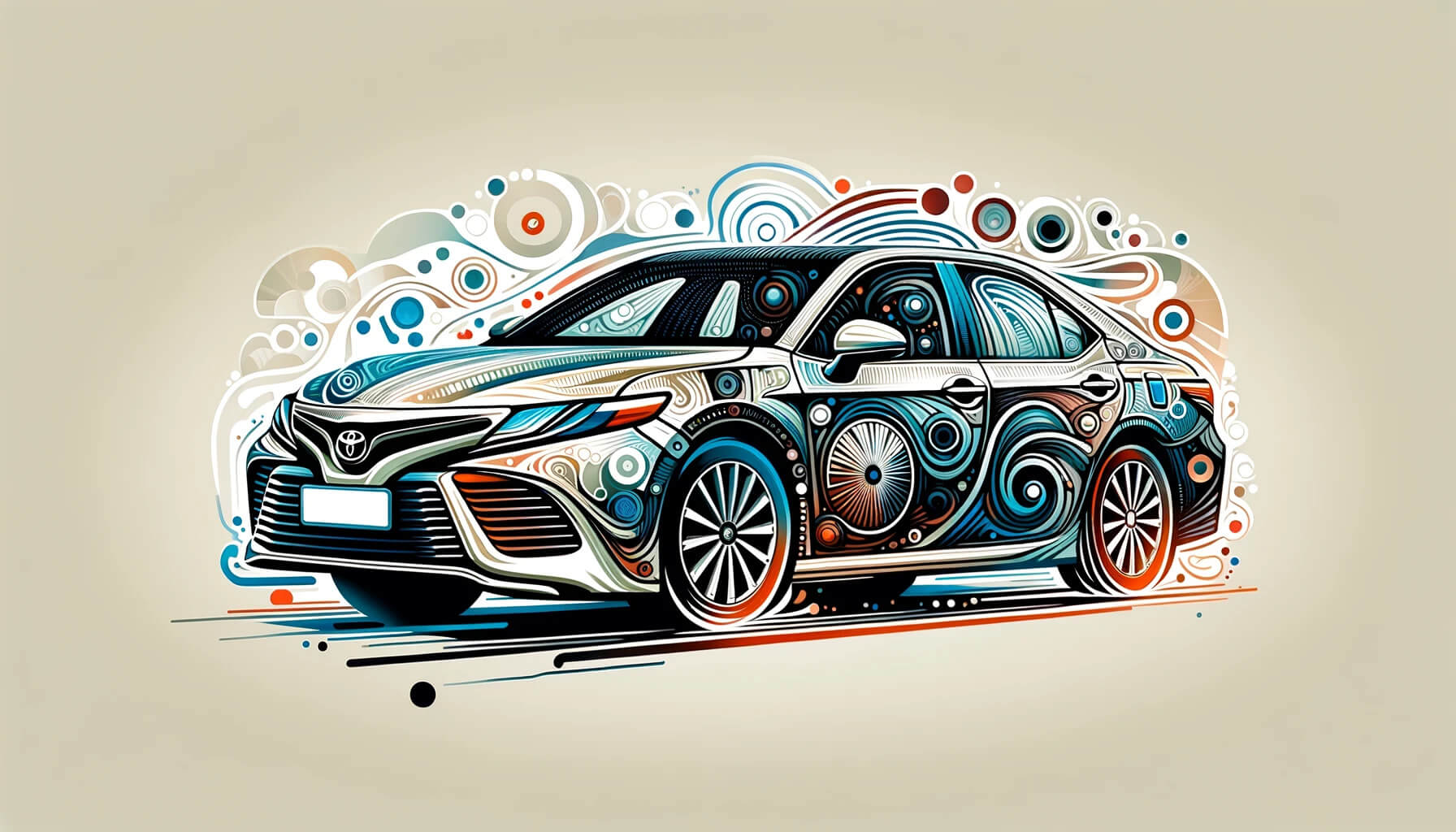
2017 Toyota Camry V6 The 2017 model, closing the seventh generation, is lauded for its updated features and reliability. It introduced advanced safety features as standard, such as lane departure alerts and adaptive cruise control, part of Toyota's safety initiative. The 2017 Camry also maintained Toyota’s high resale value and reliability scores. Its more dynamic exterior design broadened its appeal, attracting a wider audience. The model is noted for its smooth handling and robust engine performance, making it a standout in the used car market.
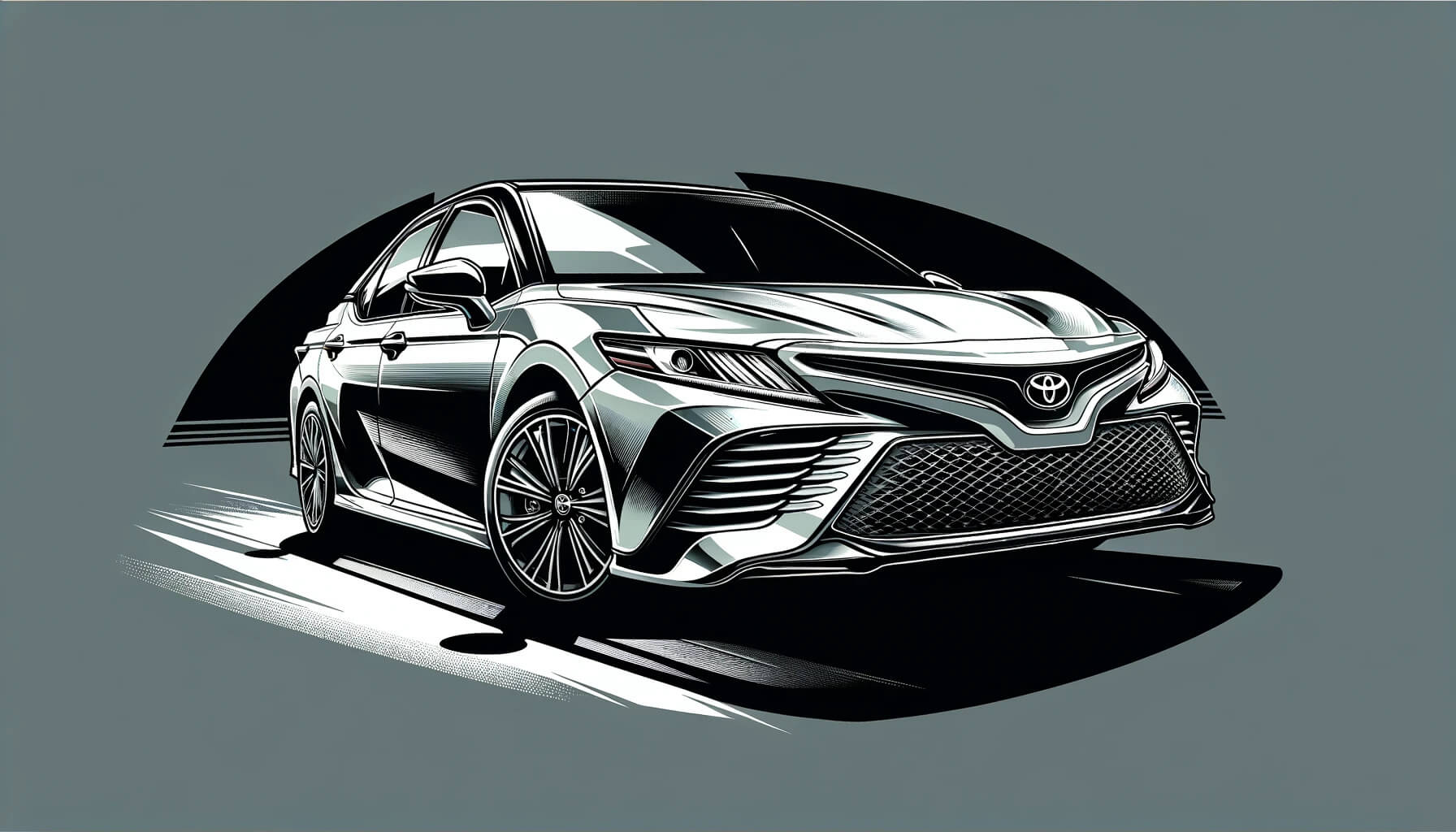
2021 Toyota Camry V6 The 2021 Camry represents a significant update, featuring technological advancements including an enhanced infotainment system compatible with Android Auto and Apple CarPlay. It also introduced comprehensive driver-assistance technologies, contributing to its high safety ratings. The model boasts a refreshed exterior design that offers a more aggressive look and improved aerodynamics. Noted for its high reliability rating and minimal reported defects or recalls, the 2021 Camry V6 is praised for its power and efficiency, providing a balanced ride that is both exhilarating and comfortable.
Summary While the Toyota Camry is a dependable vehicle across various model years, the 2011, 2017, and 2021 models stand out for their superior build quality, advanced features, and robust consumer feedback. These years embody Toyota’s core values of durability and cost efficiency, enhanced with modern aesthetics and technology, making them the top recommendations for purchasing a used Camry V6.
This detailed comparison underscores the unique advantages of each model year, helping prospective buyers choose the Camry that best fits their needs and expectations. Each model year offers a blend of traditional Toyota reliability with varying levels of technological and safety enhancements, catering to a range of preferences and budgets.
Comparison
When choosing between different Toyota Camry V6 model years, it helps to compare key attributes to find the best fit for your needs. Here’s a comparison of the 2011, 2017, and 2021 models:
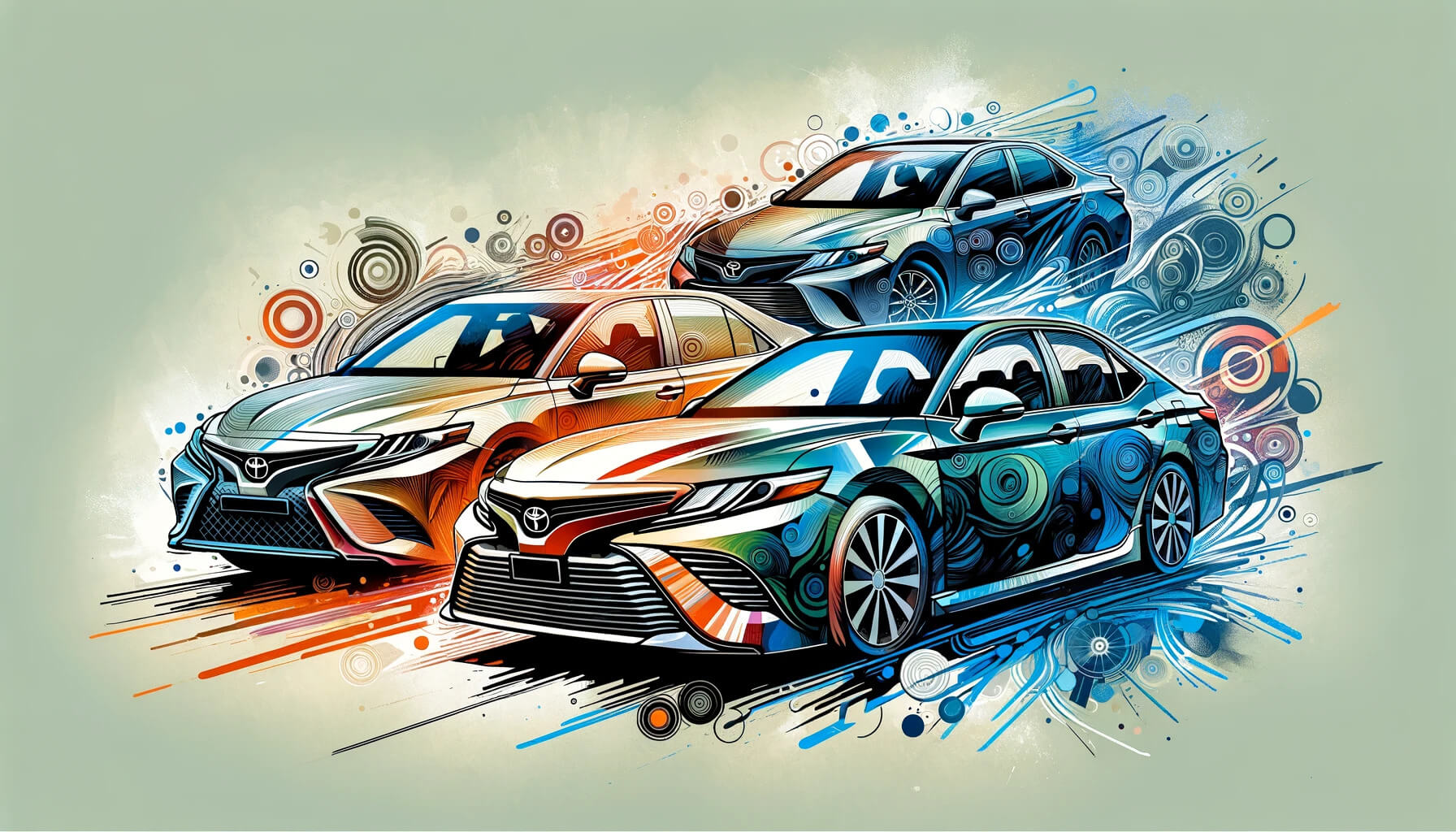
- 2011 vs. 2017 Camry V6:
- Price and Availability:
The 2011 model is generally more affordable due to its age. It's an excellent choice for budget buyers. The 2017 model is priced higher but benefits from more recent design features. - Technology:
The 2017 Camry includes features like a touchscreen infotainment system and advanced safety technology that the 2011 model lacks. These features enhance safety and the driving experience. - Reliability and Performance:
Both models are reliable, with the 2017 model benefiting from improved engine performance and transmission smoothness. The 2017 V6 engine delivers better acceleration and fuel economy than the 2011 model.
- 2017 vs. 2021 Camry V6:
- Safety Features:
The 2021 Camry includes the latest Toyota Safety Sense suite, offering blind-spot monitoring and traffic sign recognition, which are either unavailable or less advanced in the 2017 model. - Technology and Infotainment:
The 2021 Camry boasts a user-friendly infotainment system with Android Auto and Apple CarPlay, which improves connectivity. The 2017 model lacks these features. - Interior Design:
The 2021 model features a more refined interior with better-quality materials and ergonomics, reflecting modern design standards. The 2017 model is comfortable but shows its age. - Fuel Efficiency:
The 2021 Camry’s V6 engine provides slightly better fuel economy due to improved engineering and aerodynamics.
Overall Recommendations:
Choosing between these model years will depend on your budget and desired features. The 2011 Camry offers affordability and reliability. The 2017 model balances value and modern features. The 2021 model is best for advanced technology and safety features, despite its higher cost.
Pros and Cons
When choosing a used Toyota Camry V6, it's beneficial to weigh the advantages and disadvantages of the 2011, 2017, and 2021 models. This helps in making an informed decision. Here are the main pros and cons for these model years:
Pros:
- Reliability: The 2011, 2017, and 2021 Camry models are known for their reliability. Owners report few major issues, and these cars get high ratings from consumer surveys.
- Performance: The V6 engine provides robust acceleration and smooth power delivery. This makes driving enjoyable, with more power than the standard 4-cylinder models.
- Fuel Efficiency: Despite the power of V6 engines, the Camry models offer good fuel economy. This is especially true for the newer 2017 and 2021 models, thanks to engine improvements.
- Resale Value: The Camry holds its value well over time. This is due to the car’s reputation for longevity and low maintenance costs.
- Safety Features: The 2017 and 2021 models include advanced safety features like adaptive cruise control, lane departure warning, and automatic emergency braking. These features add value for daily commutes and long trips.
Cons:
- Interior Quality (2011): The 2011 model's interior is functional and comfortable but may feel outdated. It has less refined materials and older technology compared to newer models.
- Pricing (2021): The 2021 Camry V6 is more expensive due to its newer status and additional features. This could be a barrier for budget-conscious buyers.
- Cabin Noise (2017): Some owners of the 2017 model report higher levels of cabin noise at highway speeds. This can affect comfort on long drives.
- Transmission Issues (2018 Model Noted): While not specific to the 2017 model, the 2018 Camry V6 has noted issues with delayed or rough shifting, which could be a concern for some buyers.
- Dashboard and Airbag Concerns (2011-2013): Earlier models, including the 2011, have had some complaints about dashboard quality and potential airbag issues. These could require repairs or replacements over time.
In summary, while there are some drawbacks, the pros of the 2011, 2017, and 2021 Toyota Camry V6 models generally outweigh the cons. These vehicles offer a solid mix of reliability, performance, and lasting value, making them appealing choices in the used car market.
Cost of Ownership
When considering a used Toyota Camry V6, potential buyers should review several key expenses. These include the initial purchase price, fuel efficiency, maintenance and repair costs, insurance, and depreciation. Here’s a straightforward look at these factors for the 2011, 2017, and 2021 models:
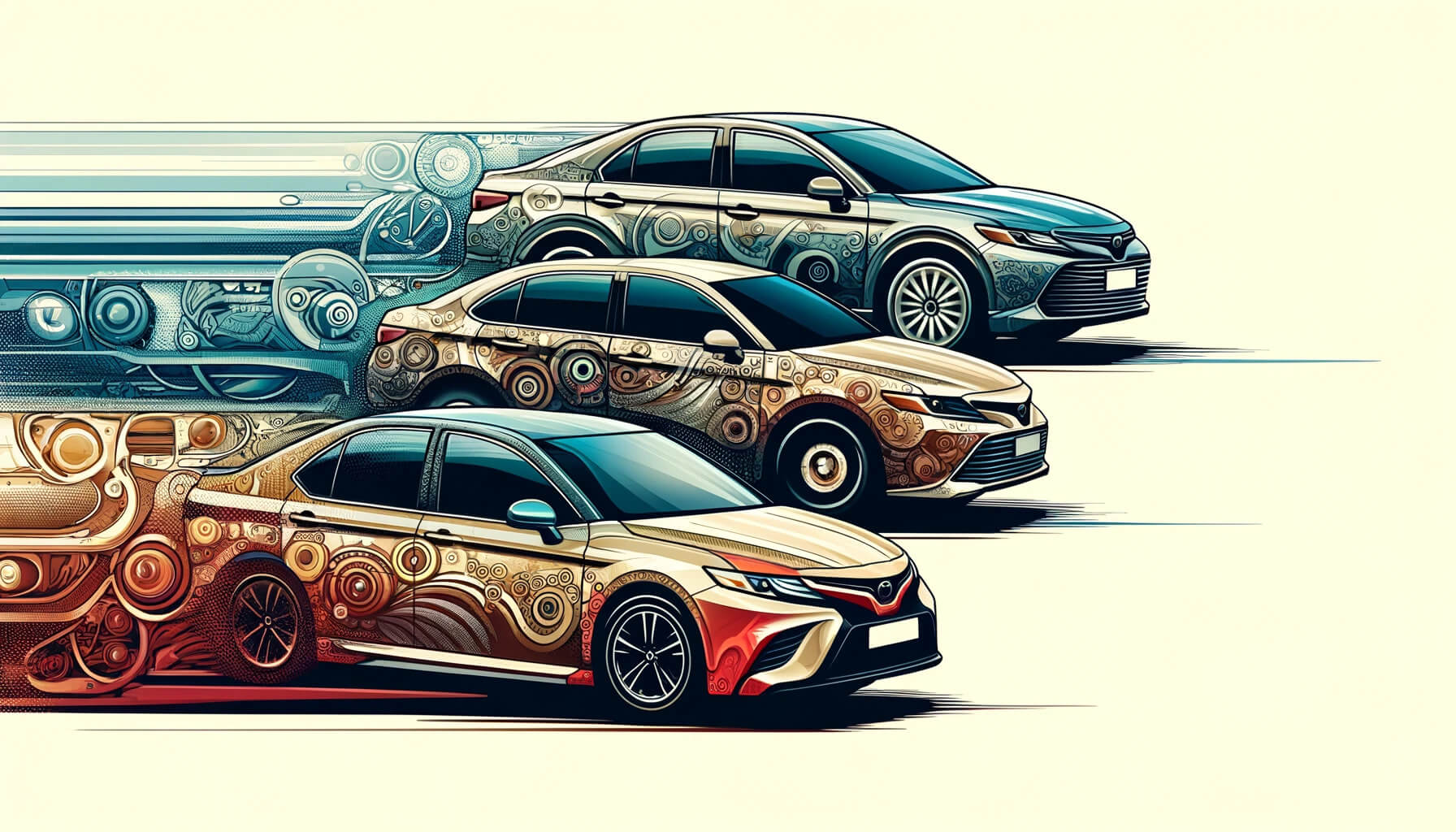
Initial Purchase Price:
The cost for a used Camry V6 changes based on the year, mileage, and condition. Older models like the 2011 are more budget-friendly. Newer models like the 2021 cost more due to recent technology and fewer expected repairs.
Fuel Efficiency:
Fuel economy is crucial. The 2011, 2017, and 2021 models perform well despite their V6 engines. The newer 2017 and 2021 models have better engine technology, improving their fuel economy. The 2021 model is the most efficient.
Maintenance and Repairs:
The Toyota Camry is known for its reliability, which means less frequent and costly repairs. The 2011 and 2017 models have proven to need fewer significant repairs when well-kept. The 2021 model, being newer, shows few mechanical issues so far.
Insurance Costs:
The Camry's safety features and low theft rates keep insurance costs down. Rates will vary by location, driving history, and insurance company. The older 2011 model typically has lower insurance premiums due to its lower current value.
Depreciation:
A car’s value decreases over time. However, the Camry is known for losing value slower than many other cars. This is due to its reputation for reliability. The 2021 model will lose value faster at first but is a good long-term value.
Summary:
The 2011, 2017, and 2021 Camry V6 models have reasonable costs of ownership. They offer good fuel economy, low maintenance costs, reasonable insurance rates, and good value retention. These factors make them solid choices for those seeking a dependable long-term car.
Safety Ratings and Features
The Toyota Camry V6 stands out for its excellent safety features, making it a top choice for both families and individual buyers who value security. Here’s a detailed look at the safety ratings and features for the 2011, 2017, and 2021 Camry models:
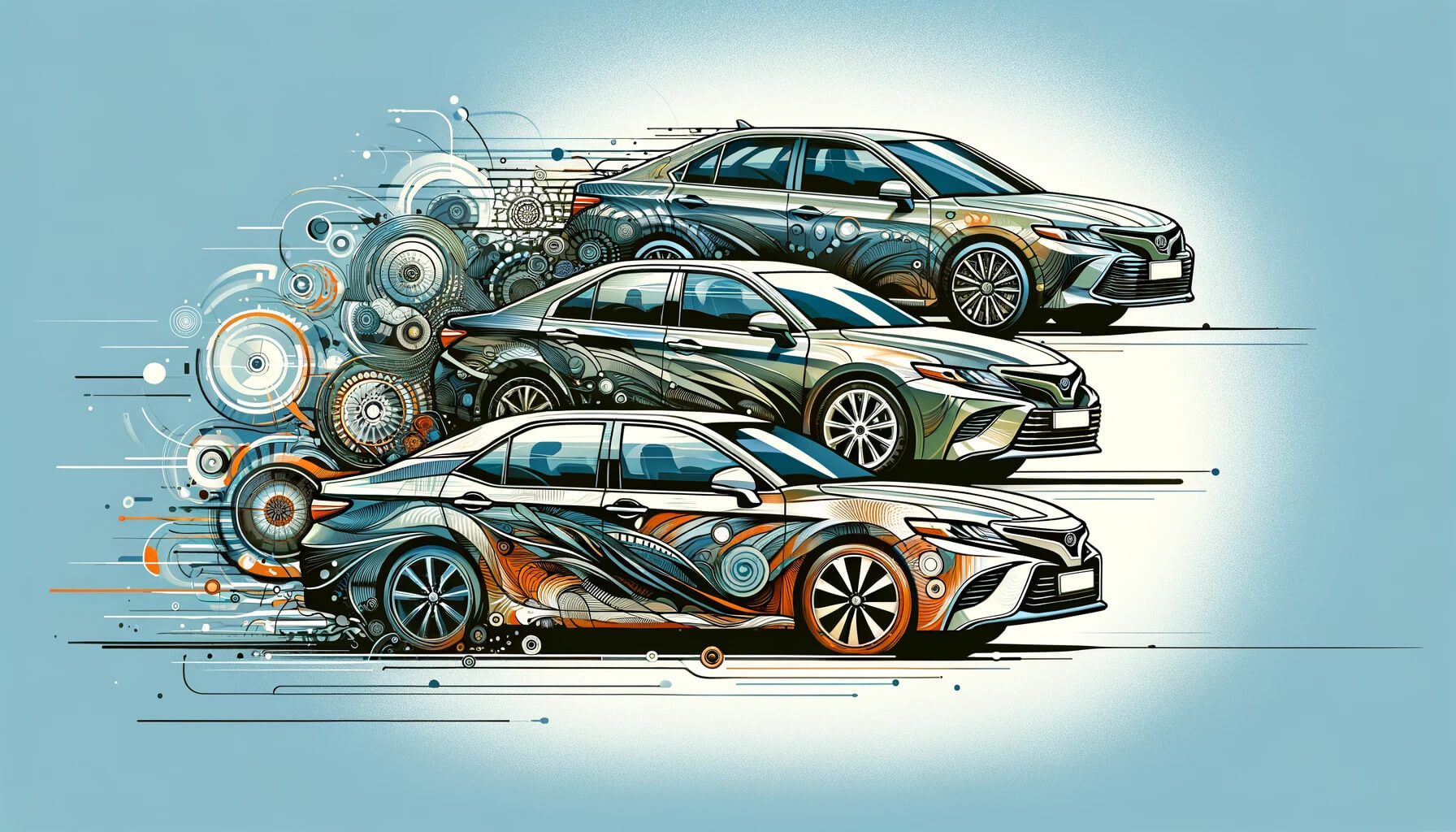
2011 Toyota Camry:
- Safety Ratings: This model earned a 4-star rating from the National Highway Traffic Safety Administration (NHTSA) and "Good" ratings from the Insurance Institute for Highway Safety (IIHS) in key crash tests. It missed some advanced safety features available in later models.
- Safety Features: It came with essential safety features such as anti-lock brakes, stability control, and front-seat side airbags, along with full-length curtain airbags.
READ MORE ON NHTSA: Visit page or Download Technical Report
2017 Toyota Camry:
- Safety Ratings: The 2017 Camry received a 5-star overall safety rating from the NHTSA and "Good" ratings across all IIHS categories, including frontal, side, and rear impact tests.
- Safety Features: Toyota introduced its Safety Sense package this year, making features like lane departure warning and adaptive cruise control standard. This package also included automatic high beams and forward collision warning with emergency braking, greatly enhancing its safety.
READ MORE ON NHTSA: Visit page or Download Technical Report
2021 Toyota Camry:
- Safety Ratings: The 2021 model continued to hold a 5-star NHTSA rating and achieved the IIHS Top Safety Pick+ designation, indicating superior crash test performance and safety features.
- Safety Features: The latest Toyota Safety Sense 2.5 included more advanced features such as lane tracing assist, road sign assist, and improved adaptive cruise control. It also offered options like rear cross-traffic alert and blind-spot monitoring, adding layers of safety.
READ MORE ON NHTSA: Visit page or Download Technical Report
Summary: Each new Camry model builds on the safety achievements of its predecessors. With every year, Toyota adds more and better safety features, reflecting their commitment to protecting drivers and passengers. The newest models offer the most thorough safety technologies, making them ideal for anyone prioritizing security in their vehicle choice.
Expert Opinions
To provide a holistic view of the best Toyota Camry V6 model years between 2011 and 2021, we consulted a diverse group of automotive experts, including mechanics, resale experts, and vehicle reviewers. Their collective insights help to validate the selection of the 2011, 2017, and 2021 Camry models as exemplary choices due to their reliability, cost-effectiveness, and customer satisfaction.
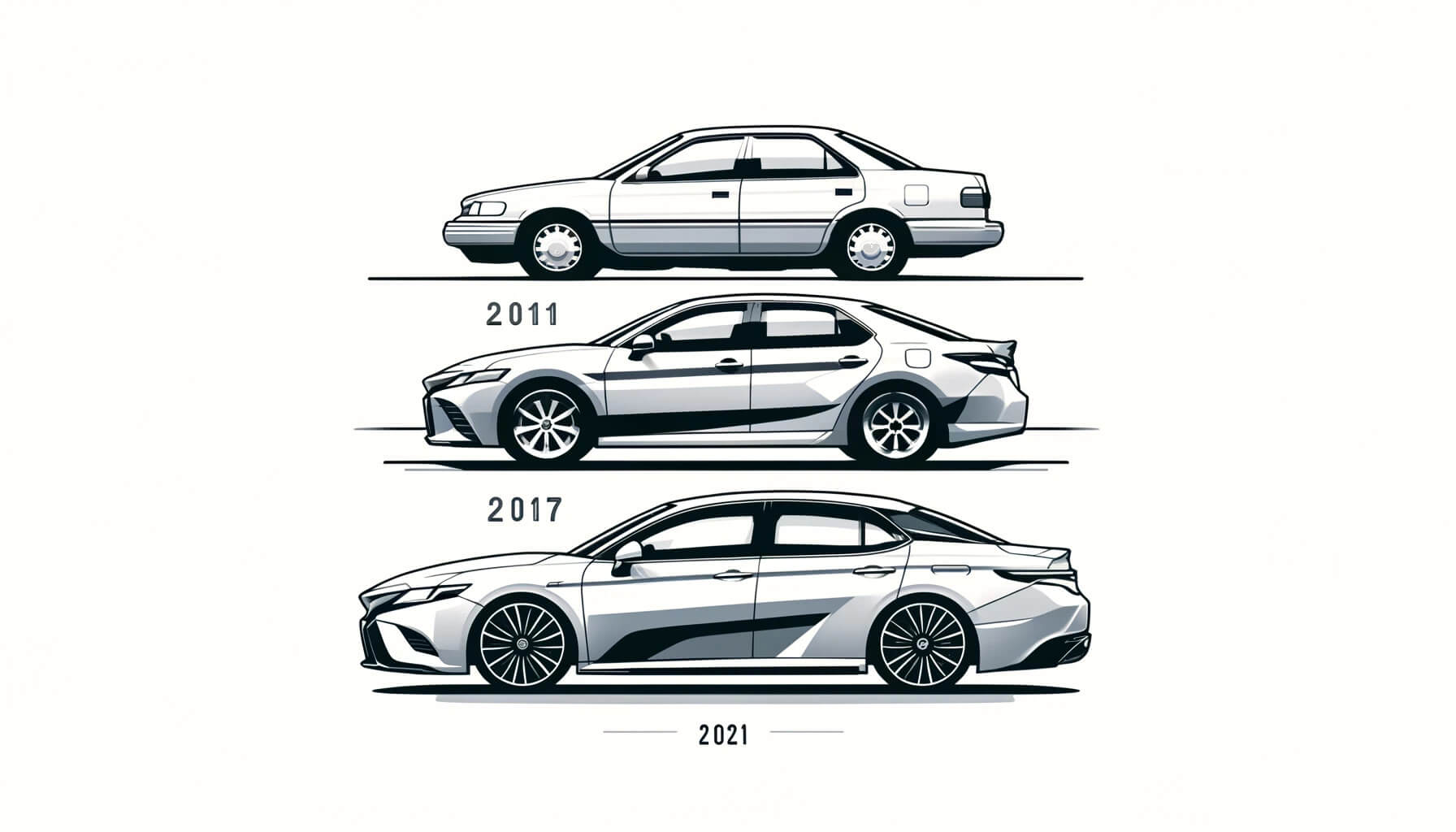
Mechanics Perspective: Mechanics familiar with the Toyota Camry emphasize the exceptional durability of the 2011, 2017, and 2021 models. These years are noted for their fewer instances of severe mechanical failures. The 2017 Camry, in particular, is highlighted for its robust engine and transmission setup, which holds up well even beyond the 200,000-mile mark, a testament to its enduring quality.
Resale Experts Insights: From a resale viewpoint, the 2011 and 2021 Camry models stand out for their strong retention of value. These models are often recommended for their lasting value over time, crucial for used car buyers. For instance, the 2021 Camry is especially appealing in the resale market due to its modern safety features and contemporary styling, which remain in high demand.
Vehicle Reviewers Analysis: Automotive reviewers focus on the overall driver and passenger experience, which includes considerations like interior comfort, technology, and driving dynamics. The 2021 Camry receives high praise for incorporating the latest technology and safety features, comparable to new models from other manufacturers. This integration of advanced tech makes the 2021 Camry a preferred choice for families and individuals who prioritize cutting-edge features in their vehicles.
Consumer Reports and Longevity Studies: According to Consumer Reports, the 2011, 2017, and 2021 Camry models consistently receive high marks for reliability and customer satisfaction. Longevity studies further support these model years, showing lower than average complaint rates and recall frequencies. The enduring appeal of these models is particularly noted in longevity studies, highlighting their minimal maintenance needs as they age.
These expert opinions collectively reinforce the wisdom of choosing the 2011, 2017, or 2021 Toyota Camry V6 for a used car purchase. Each expert brings unique perspectives that, when combined, provide a well-rounded view of why these model years excel in the vast market of used vehicles. The consensus underscores a blend of reliability, value retention, and advanced features, making these model years ideal for consumers seeking a dependable and enjoyable driving experience.
Personal Story: Michael's Journey with the 2017 Toyota Camry V6
Let's explore the story of Michael, a dedicated project manager living in San Diego. His relationship with his 2017 Toyota Camry V6 began in 2019, sparked by a need to replace an older, less reliable vehicle. With a demanding job and a young family to ferry around, Michael sought a car renowned not just for its robustness but for a promise of uninterrupted service.
Why Michael Chose the Camry: His choice was swayed by the Camry's sterling safety ratings and its reputation for enduring minimal mechanical hiccups. The 2017 Camry's blend of advanced safety features and a strong track record in reliability confirmed his decision, making it not just a purchase but a prudent investment for his family’s future.
Living with the Camry: Over the years, Michael's appreciation for the Camry has only grown. The car's V6 engine delivers robust performance that handles his commute and family excursions with equal aplomb. "It's powerful yet smooth, making every drive a pleasure," says Michael. The Camry has seamlessly integrated into his lifestyle, proving itself on long journeys and quick city hops alike.
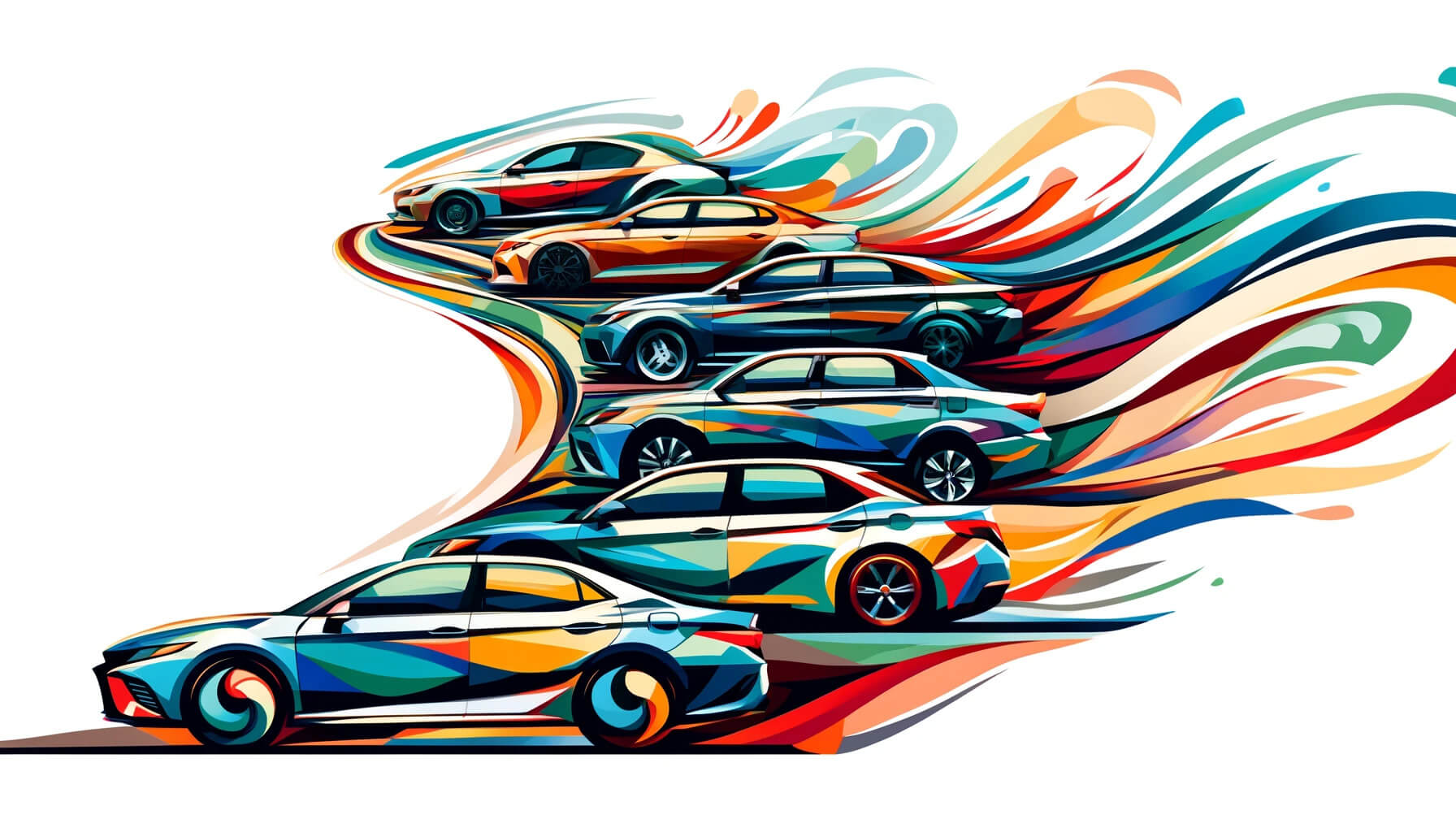
Maintenance Insights: One of Michael's highlights with the Camry has been its low upkeep costs. Regular maintenance such as oil changes and tire rotations have been sporadic yet affordable, aligning with his budget-friendly ethos. "The running costs are so low, it's like the car practically pays for itself," he jokes.
Family Approval: The Camry is not just Michael’s favorite; it's a hit with the whole family. His wife, Anna, appreciates the added safety features, particularly the adaptive cruise control and lane departure warnings, which bring her peace of mind during family outings. The spacious interior and smooth ride quality have made it the vehicle of choice for their family adventures.
Reflecting on His Choice: Reflecting on his decision, Michael feels vindicated. The Camry has exceeded his expectations, providing reliability, comfort, and efficiency beyond what he had hoped for. "Opting for the 2017 Camry was one of my best decisions—it’s more than just a car; it's part of our family now," he reflects proudly.
Michael's experience underscores the enduring value of the Toyota Camry V6, especially the 2017 model. His story vividly illustrates how a well-chosen vehicle can transform everyday practicality into lasting satisfaction.
Frequently Asked Questions
When choosing a used Toyota Camry V6, it’s crucial to consider several key features that can significantly impact both your immediate satisfaction and long-term experience with the vehicle. Here’s an in-depth look at the essential features to consider:
Engine Performance
The V6 engine in the Toyota Camry is known for its robust performance and reliability. When evaluating a used Camry V6, check the vehicle's service history for regular maintenance and any major repairs. A well-maintained engine should run smoothly without excessive noise or vibration.
Safety Features
Safety is a paramount concern, so look for models equipped with advanced safety features. Starting in 2017, Toyota began including Toyota Safety Sense, a suite that includes adaptive cruise control, lane departure alerts, and emergency braking systems. The 2021 model further enhances these features, making it a top choice for safety-conscious buyers.
Fuel Efficiency
Fuel economy is an important consideration. The Toyota Camry V6 models have improved their fuel efficiency over the years. Check the EPA fuel economy ratings for the specific year you are considering to ensure it meets your expectations for fuel consumption.
Technological Upgrades
Newer models of the Camry V6, particularly the 2021 version, come with significant technological enhancements such as an updated infotainment system compatible with Apple CarPlay and Android Auto, and more comprehensive driver-assistance technologies. These features not only enhance the driving experience but also improve the car’s usability.
Interior Comfort and Quality
Examine the interior for signs of wear and tear but also assess the quality of materials and the ergonomic layout of the controls. Over the years, Toyota has upgraded the interiors, with the 2021 model featuring more refined materials and a modern design aesthetic.
Resale Value
Consider the model’s resale value. Toyota Camry V6 models generally maintain their value well, thanks to Toyota's reputation for reliability. However, factors like vehicle condition, mileage, and specific model year can influence resale value.
Maintenance History
A comprehensive record of regular maintenance can be a strong indicator of the vehicle’s current condition. Request detailed records from the seller and consider models that have been regularly serviced at certified Toyota dealerships.
Mileage and Vehicle History
Check the mileage and overall vehicle history, including previous ownership, any accidents, and use case (e.g., commercial or personal use). A vehicle history report can provide crucial insights into the car's past that may affect its future reliability and performance.
Incorporating these features into your evaluation process will help you make an informed decision and select a used Toyota Camry V6 that offers a perfect blend of performance, comfort, and safety, ensuring it suits both your budget and lifestyle needs. When possible, have the car inspected by a trusted mechanic to confirm its condition matches the seller's description and your expectations.
The 2011 Toyota Camry V6 is highly regarded for its standout engine performance and reliability, marking it as a popular choice among used car buyers who prioritize these attributes. Here’s a detailed examination of what makes the 2011 model year particularly appealing:
Engine Performance
The 2011 Camry V6 is equipped with a 3.5-liter V6 engine that delivers a robust 268 horsepower and 248 lb-ft of torque. This engine configuration provides a smooth and responsive driving experience, which is ideal for both city driving and highway cruising. The powertrain is adept at offering quick acceleration and overtaking capabilities without compromising on smoothness or comfort.
Reliability
Toyota’s reputation for manufacturing reliable vehicles shines through with the 2011 Camry V6. This model year is particularly noted for its durability and the ability to withstand high mileage with minimal mechanical issues. Common reliability ratings from major automotive reviewers frequently place the 2011 Camry V6 at the top of its class, underlining its longevity and the infrequency of severe repairs when properly maintained.
Engine Durability
One of the key factors contributing to the 2011 Camry V6's reputation for reliability is the durability of its engine. The V6 engine used in this model year is known for its long-lasting performance, often surpassing 200,000 miles with routine maintenance. The engine's design minimizes common wear and tear, ensuring it remains robust even as the vehicle ages.
Maintenance Needs
The 2011 Toyota Camry V6 is recognized for its low maintenance requirements. This model does not typically require expensive or frequent repairs beyond the standard maintenance schedule, which includes regular oil changes, brake checks, and tire rotations. The availability of parts and the relative affordability of service interventions also contribute to its appeal.
Consumer Satisfaction
Owner satisfaction for the 2011 Camry V6 remains high, with many users praising its reliability and the low cost of ownership. Consumer reports and online forums are replete with testimonials from owners who appreciate the vehicle's dependability and the peace of mind it offers, which is a crucial aspect when considering a used vehicle.
Overall Assessment
Overall, the 2011 Toyota Camry V6 excels in engine performance and reliability, making it an excellent choice for buyers looking for a used sedan that combines power, durability, and an enjoyable driving experience. Its proven track record for longevity and owner satisfaction ensures that it remains a competitive option in the used car market. If you are considering a 2011 Camry V6, it is recommended to verify the individual vehicle’s maintenance history to ensure that it reflects the model’s potential for long-term reliability.
The 2017 Toyota Camry V6 introduced a suite of advanced safety enhancements, elevating the vehicle's status as a leader in automotive safety within its class. These upgrades focused on protecting passengers, preventing accidents, and providing a more secure driving experience. Here’s a comprehensive overview of the significant safety features introduced in the 2017 model:
Toyota Safety Sense P (TSS-P)
A pivotal addition to the 2017 Toyota Camry V6 was the Toyota Safety Sense P (TSS-P), a suite that combines active safety technologies to assist the driver. Key components include:
-
Pre-Collision System with Pedestrian Detection: This system uses a camera and radar to detect obstacles and pedestrians, providing visual and auditory warnings, and if necessary, it automatically applies the brakes to mitigate or prevent a collision.
-
Lane Departure Alert with Steering Assist: Utilizing a camera to monitor lane markings, this feature alerts the driver when it detects unintentional lane departures. If needed, it can gently steer the vehicle back into its lane to help maintain course.
-
Automatic High Beams: Designed to improve night vision, this feature automatically switches between high and low beams when detecting the headlights of oncoming traffic or the taillights of vehicles ahead, enhancing safety during night driving.
-
Dynamic Radar Cruise Control: This adaptive cruise control adjusts vehicle speed to maintain a safe following distance from the vehicle ahead. It automatically decelerates and accelerates according to traffic flow, maintaining driver-set parameters.
Structural Enhancements
The 2017 Camry V6 was engineered with increased use of high-tensile steel, bolstering the vehicle’s body structure for improved impact resistance. This enhancement not only contributed to better occupant safety during collisions but also improved the vehicle’s overall handling and stability.
Comprehensive Airbag System
The model featured an advanced airbag system, which includes driver and front passenger airbags, front and rear side curtain airbags, and side-impact airbags. These are strategically placed to maximize protection against injury in the event of a collision.
Star Safety System
This integrated system features several technologies aimed at improving braking and preventing skidding:
- Anti-lock Brake System (ABS) ensures braking is effective even on slippery surfaces.
- Electronic Brake-force Distribution (EBD) balances braking forces at each wheel depending on the conditions and load of the vehicle.
- Brake Assist (BA) detects emergency braking and increases braking power.
- Vehicle Stability Control (VSC) and Traction Control (TRAC) work to prevent wheel slip and loss of traction.
Child Safety
The inclusion of the LATCH (Lower Anchors and Tethers for Children) system ensures that child seats are securely attached, reducing the risk of harm in a crash.
The introduction of these sophisticated safety features in the 2017 Toyota Camry V6 highlights Toyota’s ongoing commitment to enhancing vehicle safety, making it an ideal choice for families and safety-conscious drivers. This comprehensive approach to safety not only helps prevent accidents but also ensures superior protection for all occupants.
Checking out the Toyota Camry V6 models from the past decade? You'll notice each year brings something better to the table, especially when it comes to saving fuel.
2011 Toyota Camry V6
Back in 2011, this Camry packed a 3.5-liter engine with a solid 268 horsepower. For a powerful V6, it did alright on fuel, managing about 20 miles per gallon in the city and 29 on the open road. For its time, those numbers weren’t too bad.
2017 Toyota Camry V6
Fast forward to 2017, and you see a slight bump in efficiency. Same engine size, but now it squeezes out 21 miles per gallon in urban settings and 30 on highways. Toyota tweaked the engine a bit and trimmed down the car’s weight, making it a tad thriftier at the pump.
2021 Toyota Camry V6
Then comes the 2021 model, still sporting the 3.5-liter engine but with slick upgrades like direct injection and smarter valve timing. These boosts help it achieve around 22 miles per gallon in the city and an impressive 33 on highways. The switch to an eight-speed automatic transmission also helps maximize every drop of fuel.
Over the years, Toyota’s Camry V6 has definitely grown more fuel-efficient. It’s pretty clear that Toyota is pushing hard to cut down on fuel consumption and help out the environment a bit. If you’re all about getting the most out of every gallon, especially if you want a car that can still zoom around, the 2021 model is a clear winner. It perfectly mixes modern tech with efficiency, showing just how far we’ve come in a decade.
The 2021 Toyota Camry V6 really stepped up its game with some impressive technological upgrades. These improvements not only enhance the driving experience but also keep you safer on the road. Here’s what’s new in the 2021 model:
Infotainment System
The 2021 Camry V6 comes with an updated infotainment system that's more intuitive and user-friendly than ever. It includes a larger touchscreen display that supports Apple CarPlay and Android Auto, making it super easy to connect your smartphone. Now, whether you’re trying to navigate to a new place, queue up some tunes, or send a hands-free text, it’s all at your fingertips without a fuss.
Driver Assistance Technology
Toyota really dialed up the safety features for 2021. The Camry V6 now includes Toyota Safety Sense 2.5+, the latest version of Toyota’s comprehensive safety package. This includes advanced features like:
- Enhanced Pre-Collision System with Pedestrian Detection: This system now has improved radar and camera capabilities to detect bicyclists and pedestrians in low-light conditions.
- Adaptive Cruise Control with Enhanced Road Sign Assist: Not only does this keep a safe distance from the car in front of you, but it can also now read certain road signs and adjust speed accordingly.
- Lane Keeping Assist with Lane Tracing: It not only alerts you if you start to drift but can also subtly adjust steering to keep you centered in your lane.
Digital Dashboard and Heads-Up Display
The 2021 model introduces a fully digital instrument cluster that offers customizable displays, which means you can decide what information you need at a glance. Plus, there's an available 10-inch color Heads-Up Display that projects essential information, like speed and turn-by-turn navigation, directly onto the windshield in front of you.
Energy Efficiency and Emissions
In terms of mechanical tech, the 2021 Camry V6 is equipped with an updated engine management system that improves fuel efficiency and reduces emissions. So, you’re getting a cleaner, more efficient ride without sacrificing power.
These tech upgrades in the 2021 Toyota Camry V6 make it a standout choice for tech enthusiasts and safety-conscious drivers alike. Toyota has really pushed the envelope to integrate technology that improves daily driving, ensuring both enjoyment and safety.
When considering used cars like the 2011 and 2017 Toyota Camry models, it’s useful to know about common maintenance issues that owners have reported over the years. While both models are generally reliable, being aware of these issues can help you make a more informed decision and plan for potential repairs.
2011 Toyota Camry
-
Excessive Oil Consumption: Some 2011 Camry models, especially those with higher mileage, have been noted to consume oil faster than usual. This issue often necessitates more frequent oil checks and top-offs to ensure the engine runs smoothly and to avoid damage.
-
Dashboard Melting or Becoming Sticky: In warmer climates, there have been reports of the dashboard material degrading, becoming sticky, or even melting. This not only affects the aesthetics but can also be a distraction while driving due to the glare it causes.
-
Brake Wear: Although this is generally considered regular maintenance, the 2011 Camry has been known to require more frequent brake replacements. Pads and rotors might wear faster than expected, so it’s something to keep an eye on.
-
Steering Column Noise: Some users have reported a clunking or clicking noise coming from the steering column, especially when turning at low speeds or maneuvering in parking lots. This can sometimes be attributed to wear in the steering rack or column itself.
2017 Toyota Camry
-
Air Conditioning Issues: A common issue in the 2017 Camry is the air conditioning system failing to cool or unexpectedly blowing warm air. This may be due to leaks or faults in the AC compressor or refrigerant issues.
-
Shift Lever Sticking: There have been instances where the shift lever may become difficult to move out of the "Park" position. This is often related to a malfunction in the shift lock solenoid or issues within the electronic systems controlling the transmission.
-
Infotainment System Glitches: The 2017 model's infotainment system can sometimes experience glitches, such as the touchscreen becoming unresponsive or the system rebooting on its own. While firmware updates from Toyota can resolve many of these issues, they can still be a nuisance.
-
Battery Drain: Some 2017 Camrys have reported issues with the battery draining, which can be linked to software issues affecting the car's electrical system or failing batteries that do not hold charge effectively.
Being aware of these common issues can help you discuss potential past and future repairs with the seller and ensure a thorough inspection is done, preferably by a trusted mechanic. Regular maintenance and addressing these issues early can significantly extend the life and performance of both the 2011 and 2017 Toyota Camry models.
The 2021 Toyota Camry V6 holds its resale value exceptionally well, especially when compared to earlier models. Several factors contribute to this, making it a standout choice for those who consider resale value an important aspect of their vehicle purchase.
Technological and Safety Enhancements The 2021 Camry V6 comes loaded with the latest technological and safety features, as mentioned earlier, including the comprehensive Toyota Safety Sense 2.5+ and a modern infotainment system. These advancements not only meet the current market expectations but also ensure the vehicle remains competitive and desirable, thus retaining its value better over time.
Fuel Efficiency Improvements in fuel efficiency also play a crucial role in the strong resale value of the 2021 Camry V6. With rising fuel prices and increasing environmental concerns, more buyers are looking for efficient yet powerful vehicles. The 2021 model's enhanced fuel economy makes it a more attractive option in the used car market.
Brand Reputation Toyota’s longstanding reputation for building durable, reliable cars supports the residual value of its vehicles. The Camry, being one of Toyota’s flagship models, benefits significantly from this perception. The 2021 model, with its minimal recall history and strong customer satisfaction ratings, is seen as a particularly reliable buy.
Aesthetic and Design Upgrades The 2021 model also features more contemporary aesthetics and design elements that align with current trends, making it more appealing to a broader audience. From sleek exterior lines to high-quality interior materials, the upgraded design elements help the car maintain a more modern look, which is crucial for resale value.
Market Trends The market trend shows a consistent demand for midsize sedans, especially those with a good mix of performance and efficiency. The Camry V6 fits this niche perfectly, making it a sought-after model in both new and used car markets.
Comparison with Earlier Models Compared to earlier models like the 2011 or 2017 Camrys, the 2021 Camry V6 is likely to depreciate at a slower rate due to these enhancements. While older models are praised for their reliability and performance, the lack of modern features and lower fuel efficiency can accelerate depreciation.
In summary, the 2021 Toyota Camry V6 is an excellent investment for those looking to purchase a vehicle with a mind toward future resale. It builds on the strengths of its predecessors with modern updates that keep it at the forefront of the midsize sedan market, ensuring it remains a valuable asset when it comes time to sell.
The 2021 Toyota Camry V6 showcases significant interior quality improvements over the 2011 and 2017 models, reflecting Toyota's commitment to enhancing comfort, style, and functionality with each new release. Here’s a look at the specific upgrades that the 2021 model brings to the table:
Materials and Build Quality The 2021 Camry V6 features higher quality materials throughout the cabin compared to its predecessors. While the 2011 model had a more functional and basic approach with its interior design, and the 2017 model introduced softer materials and a more cohesive layout, the 2021 model elevates this with premium materials such as soft-touch surfaces and high-grade plastics. These materials not only enhance the aesthetic appeal but also contribute to a more solid, durable build that reduces noise and enhances comfort.
Ergonomic Design Toyota has progressively improved the ergonomics of the Camry’s interior. The 2021 model features a more driver-oriented dashboard and controls that are easier to reach and operate. The seating has also been upgraded for better support and comfort, particularly on longer drives. This model includes power-adjustable seats with more customization options, allowing drivers and passengers of various sizes to find their optimal seating position.
Technology and Connectivity The infotainment system in the 2021 Camry V6 is a major leap forward. Unlike the 2011 and even the 2017 models, which had relatively basic systems, the 2021 Camry includes a larger, more responsive touchscreen with seamless integration of both Apple CarPlay and Android Auto. This model also features more advanced connectivity options, including multiple USB ports and wireless charging, providing a more convenient and connected driving experience.
Ambient Lighting and Aesthetic Details The 2021 model introduces ambient interior lighting, which was not available in the earlier models. This feature adds to the car’s ambiance and enhances the overall driving experience during night-time. Additionally, the use of finer materials and attention to detail in fixtures and trim elements contributes to a more luxurious feel inside the cabin.
Noise, Vibration, and Harshness (NVH) Reduction Significant improvements have been made in the 2021 model to reduce noise, vibration, and harshness. This includes better insulation materials and design tweaks that help make the cabin quieter. These changes ensure that road and engine noise is less intrusive, making the 2021 Camry’s interior a more peaceful and enjoyable space.
Overall, the 2021 Toyota Camry V6 represents a notable improvement in interior quality over the 2011 and 2017 models. These enhancements make the latest model not only more comfortable and luxurious but also more practical and user-friendly, reflecting modern car buyers' expectations and needs.
For someone prioritizing advanced safety features in a Toyota Camry V6, the 2021 model is undoubtedly the recommended choice. Toyota has consistently upgraded its safety technology across different model years, but the 2021 Camry V6 showcases the most comprehensive and sophisticated safety features yet, aligning with the latest industry standards and consumer expectations. Here’s why the 2021 Camry V6 stands out:
Toyota Safety Sense 2.5+ (TSS 2.5+): The 2021 Camry V6 comes equipped with Toyota Safety Sense 2.5+, the newest iteration of Toyota’s advanced suite of safety technologies. This package includes several key features designed to enhance driver awareness, prevent accidents, and protect passengers more effectively than ever before. Notable components include:
- Pre-Collision System with Pedestrian Detection: This system has been enhanced to detect pedestrians in low-light conditions more effectively and now includes cyclist detection during daylight, offering broader protection.
- Dynamic Radar Cruise Control: The updated system can now perform overtaking maneuvers more smoothly and adjust speed more effectively when a slower vehicle is detected ahead.
- Lane Departure Alert with Steering Assist: This feature has been refined to provide better lane recognition and assist control, helping to keep the vehicle safely within its lane.
- Road Sign Assist: This addition reads road signs and provides alerts to the driver, ensuring crucial information like speed limits and stop signs are not missed.
Enhanced Structural Safety: The 2021 Camry V6 also benefits from improvements in vehicle construction, using high-strength materials that enhance the car’s structural integrity. This not only helps in absorbing and dissipating crash energy more effectively but also improves the overall safety in the event of an accident.
Advanced Airbag System: The airbag system in the 2021 Camry V6 includes advanced multistage front airbags, side curtain airbags, knee airbags for the driver, and a front passenger seat cushion airbag. These offer enhanced protection from multiple angles, reducing the risk of injury in various types of collisions.
Blind Spot Monitoring with Rear Cross Traffic Alert: These features, which were optional or limited to higher trims in earlier models, have become more accessible in the 2021 model. They significantly enhance situational awareness and safety when changing lanes or reversing.
Given these extensive safety upgrades and the emphasis on incorporating cutting-edge technology, the 2021 Toyota Camry V6 is the top recommendation for anyone prioritizing safety in their vehicle choice. This model not only meets current safety standards but also anticipates future norms, making it a smart and secure investment.
The cost of ownership for the Toyota Camry V6 varies significantly across the 2011, 2017, and 2021 models due to advancements in technology, changes in maintenance needs, and improvements in fuel efficiency. Here’s a breakdown of how these factors influence the overall cost of ownership for each model year:
2011 Toyota Camry V6
- Initial Purchase Price: As an older model, the 2011 Camry V6 can be purchased at a lower price point, making it affordable upfront. However, being older, it might require more frequent repairs.
- Maintenance and Repairs: This model may see higher costs in maintenance due to age. Common issues like excessive oil consumption and wear on parts like brakes and tires could lead to more frequent service visits.
- Fuel Efficiency: The 2011 model is less fuel-efficient than its newer counterparts, with an average of about 20 mpg city and 29 mpg highway. This results in higher fuel costs over time.
- Depreciation: This model has already undergone most of its depreciation, so while its resale value is lower, it loses value more slowly at this stage.
2017 Toyota Camry V6
- Initial Purchase Price: Moderately priced due to its age, the 2017 model offers a good balance between modern features and affordability.
- Maintenance and Repairs: Generally, the 2017 model is reliable but may start showing signs of wear. Its maintenance costs are typically lower than the 2011 model due to improved reliability and the availability of parts.
- Fuel Efficiency: Improved fuel efficiency over the 2011 model, averaging about 21 mpg city and 30 mpg highway, helps to reduce long-term fuel costs.
- Depreciation: This model will still depreciate but at a slower rate compared to newer cars, maintaining a decent resale value, especially with its updated features.
2021 Toyota Camry V6
- Initial Purchase Price: Being the newest model, the 2021 Camry V6 has the highest initial cost but comes with the most advanced technology and safety features.
- Maintenance and Repairs: The 2021 model benefits from the latest engineering advances, resulting in lower expected maintenance costs. New vehicles also come with warranties that can cover many potential issues for several years.
- Fuel Efficiency: The most fuel-efficient of the three, with about 22 mpg in the city and 33 mpg on the highway, significantly reducing fuel costs.
- Depreciation: As a new car, the 2021 model will experience more rapid depreciation in the first few years compared to older models.
Overall Comparison The total cost of ownership for the 2021 Toyota Camry V6, while higher initially due to its purchase price, is offset by lower maintenance costs, better fuel efficiency, and the advantage of modern safety and tech features that can appeal to future buyers. The 2017 model presents a middle ground with moderate costs across the board and fewer issues than the 2011 model. The 2011 Camry, although cheapest upfront, might incur higher maintenance and fuel costs, making it potentially more expensive in the long run.
Choosing between these depends largely on your budget, how long you plan to keep the car, and what you value most in vehicle ownership—be it advanced technology and lower running costs or a lower initial purchase price.
Purchasing a 2017 Toyota Camry V6 can be an attractive option for many buyers, offering a balance between modern amenities and value. Here's an analysis of the pros and cons of choosing the 2017 model over the 2011 and 2021 models:
Pros of the 2017 Toyota Camry V6
Modern Safety Features: The 2017 Camry V6 includes advanced safety technologies as part of the Toyota Safety Sense P package. Features like adaptive cruise control, automatic high beams, lane departure alert with steering assist, and pre-collision system with pedestrian detection make it a safer choice compared to the 2011 model.
Enhanced Infotainment: This model year introduced a more sophisticated infotainment system compared to the 2011 version, including improved connectivity features like a more user-friendly touchscreen interface and Bluetooth connectivity. This makes the driving experience more enjoyable and convenient.
Better Fuel Efficiency: The 2017 model offers better fuel efficiency than the 2011 model, with slight improvements that help lower ongoing fuel costs. It achieves approximately 21 mpg in the city and 30 mpg on the highway.
Reliability and Durability: The 2017 Camry V6 benefits from Toyota's reputation for reliability. It's a well-built car that holds up well over time with proper maintenance, likely encountering fewer issues than an older model like the 2011.
Cons of the 2017 Toyota Camry V6
Higher Initial Cost than Older Models: While more affordable than the newest 2021 model, the 2017 Camry V6 is still more expensive than buying an older model like the 2011, mainly due to its newer technologies and better condition.
Depreciation: Although it holds value well, the 2017 Camry V6 will still depreciate faster than an older model. Newer cars like the 2021 model will experience the most rapid depreciation in the first few years, but the 2017 will still see significant depreciation from its original purchase price.
Lacks Latest Technological Updates: While it does have solid technology upgrades, the 2017 model doesn’t include the very latest features found in the 2021 model, such as the advanced driver-assist systems and the latest infotainment upgrades.
Potential for Out-of-Warranty Repairs: Depending on the vehicle's history and mileage, some 2017 models may be out of their factory warranty period, which could lead to higher costs if significant repairs are needed.
Conclusion
Choosing the 2017 Toyota Camry V6 is a solid middle-ground choice. It strikes a balance between cost, features, and technology, making it a practical option for those who want a modern car without paying the premium for the latest model. It offers significant improvements over the 2011 model, particularly in safety and technology, without the steeper price tag of the 2021 model. However, potential buyers should weigh the initial cost and possible out-of-warranty repairs against the benefits of newer technologies and reduced fuel consumption.
When considering the purchase of a used Toyota Camry, particularly the models from 2011, 2017, and 2021, it's important to be aware of any recalls or consumer alerts that might affect these vehicles. Here’s a breakdown of notable recalls for each model year:
2011 Toyota Camry
- Accelerator Pedal Entrapment: Some 2011 models were recalled due to the potential for floor mats to cause accelerator pedal entrapment, which could lead to unintended acceleration.
- Brake Master Cylinder Leakage: There was a recall regarding the brake master cylinder, which could leak brake fluid, affecting the brake's performance and increasing the risk of a crash.
2017 Toyota Camry
- Engine Misfire: A recall was issued for some 2017 Camry models due to a misfire that could occur because of improperly machined pistons. This issue could lead to the engine running roughly, a reduction in power, and even a potential stall.
- Airbag Deployment: This model year also saw recalls related to improperly calibrated occupant sensing systems, which could affect airbag deployment during an accident.
2021 Toyota Camry
- Fuel Pump Failure: The 2021 Camry was part of a broader Toyota recall concerning fuel pumps that might fail. A failing fuel pump can cause the engine to stall while driving, increasing the risk of a crash.
- Seat Belt Tension Sensor: There was a recall for an issue with the front passenger seat belt tension sensor, which could malfunction and lead to the passenger's front airbag not deploying properly in certain types of crashes.
General Considerations
Recalls are a serious matter as they relate directly to safety issues. If you are considering buying a used Toyota Camry from any of these years, it’s crucial to check whether all recalls have been addressed. You can do this by visiting the National Highway Traffic Safety Administration (NHTSA) website and entering the vehicle's VIN number. This will provide you with up-to-date information on any recalls or alerts that apply to the specific vehicle you're interested in.
Additionally, it’s a good practice to have any used vehicle inspected by a trusted mechanic who can identify potential issues, including those related to any past recalls. This can help ensure that the vehicle is safe and in good running condition before you make a purchase.
The driving experiences of the Toyota Camry V6 across the 2011, 2017, and 2021 models differ significantly, reflecting the technological and design advancements Toyota has implemented over the decade. Here's how the driving experience evolves with each model:
2011 Toyota Camry V6
Driving Feel: The 2011 Camry V6 offers a comfortable and smooth ride, typical of Toyota's design focus during this period. It’s well-suited for those who prioritize a relaxed driving experience over sporty performance. The V6 engine provides ample power, making it easy to handle highway merges and overtakes. Handling and Suspension: This model has a softer suspension setup that prioritizes comfort over sharp handling. Steering is lighter, which is great for city driving but might feel less responsive during high-speed maneuvers.
2017 Toyota Camry V6
Driving Feel: By 2017, the Camry V6 began to sport a slightly more dynamic edge. With a retuned suspension and more responsive steering, the 2017 model feels more planted and confident on the road, especially on curves and during higher-speed driving. Handling and Suspension: The suspension is firmer compared to the 2011 model, which reduces body roll and improves handling. It strikes a balance between comfort and agility, making it a more versatile option for a wider range of driving scenarios. Technology Enhancements: The introduction of Toyota Safety Sense technologies like adaptive cruise control and lane-keeping assist also improves the driving experience by adding a layer of convenience and safety.
2021 Toyota Camry V6
Driving Feel: The 2021 model is the most refined version, offering an even more engaging and enjoyable driving experience. With further enhancements to engine performance and handling, it delivers a more powerful and exhilarating ride. Handling and Suspension: This model features an even more sophisticated suspension system that provides excellent road feedback and sharper handling capabilities without sacrificing comfort. The steering is precise, offering good feedback that appeals to those who enjoy a more spirited driving style. Advanced Driver Assistance Systems (ADAS): The latest iteration of Toyota Safety Sense in the 2021 Camry V6 includes features that not only enhance safety but also contribute to a more relaxed driving experience, especially on long journeys. Features like enhanced radar cruise control and lane tracing assist help reduce driver fatigue.
Summary
From 2011 to 2021, the Toyota Camry V6 has evolved from a predominantly comfort-oriented sedan to a more balanced vehicle that offers both comfort and enhanced driving dynamics. The 2021 Camry V6, in particular, stands out for its modernized features and systems that make it the most driver-centric of the three, providing a richer and more connected driving experience. Whether you're looking for a solid, reliable ride, a balanced everyday car, or a technologically advanced sedan with sporty flair, the evolution of the Camry V6 covers all these aspects across its different model years.
When purchasing a used Toyota Camry, especially models from 2011, 2017, and 2021, it’s important to understand the types of warranties that might still be applicable or available. Here’s a breakdown of typical warranty options for these vehicles:
Original Toyota Warranties
Basic Coverage: Toyota typically offers a 3-year/36,000-mile comprehensive warranty that covers most components other than normal wear and tear and maintenance items. Powertrain Warranty: This is usually more extended, often covering 5 years or 60,000 miles. It includes the engine, transmission, and other key powertrain components. Corrosion Warranty: Toyota also provides a corrosion warranty that generally lasts for 5 years, with unlimited mileage.
Certified Pre-Owned (CPO) Toyota Camry
If you're buying a Certified Pre-Owned Camry, Toyota offers additional warranty benefits: Comprehensive Warranty: CPO vehicles often come with a 12-month/12,000-mile comprehensive warranty that starts from the date of the CPO purchase. Powertrain Warranty: CPO Camrys typically extend the original powertrain warranty to 7 years from the original in-service date or 100,000 total vehicle miles. Extras: CPO warranties often include no deductible for covered repairs and may include roadside assistance.
Extended Warranties
Third-Party Extended Warranties: These are available through third-party providers and can vary significantly in terms of coverage and cost. These warranties can be customized to cover various components and can extend well beyond the original Toyota warranties. Dealer Extended Warranties: Some dealers offer their own extended warranty programs, which might provide additional coverage that could be more comprehensive than third-party options. It’s essential to read the details of these warranties to understand what is covered.
Important Considerations
- Transferability: Original Toyota warranties are typically transferable to subsequent owners, which can be a significant advantage if the used Camry you are considering is still within the warranty period.
- Check for Validity: It’s crucial to check whether the vehicle you're considering is still under warranty based on its in-service date and mileage. This can often be done by requesting the vehicle's history report or directly from the dealer.
- Maintenance History: Warranty claims can sometimes be contingent on whether the car has been maintained according to Toyota’s schedule. Ensure that the Camry has a complete service history to avoid potential issues with warranty claims.
For those considering a used Toyota Camry, understanding these warranty options can provide peace of mind, protect against unexpected repair costs, and enhance the vehicle’s value. Always verify the specific warranty details for the vehicle you intend to purchase.
If you're curious about how safe the Toyota Camry V6 has become over the years, there's some good news. It's only gotten better from 2011 to 2021, with each new model adding more and better safety features. Let's dive into how things have changed.
2011 Toyota Camry V6 Back in 2011, the Camry V6 was already considered a safe car. It scored a solid four stars in the overall safety rating from NHTSA and was praised by the IIHS too. But it was pretty basic by today's standards—think airbags, anti-lock brakes, and stability control, but none of the fancy tech we see now.
What's Changed by 2017? Fast forward to 2017, and you see a big leap in safety. The Camry got a perfect five stars from NHTSA and was named a Top Safety Pick+ by the IIHS. That's thanks to Toyota Safety Sense P kicking in, adding stuff like:
- A Pre-Collision System that can spot pedestrians.
- Lane Departure Alerts that help keep you straight.
- Automatic High Beams for better night visibility.
- Adaptive Cruise Control that adjusts your speed based on traffic.
2021 Toyota Camry V6 By 2021, Toyota had polished these systems to an even finer sheen. The safety suite, now called Toyota Safety Sense 2.5+, got smarter and more responsive. It could do things like detect cyclists, better lane recognition, and even handle some driving tasks semi-autonomously. Plus, the car's build itself used tougher materials, making it sturdier in crashes.
In Simple Words From 2011 to 2021, the Camry V6 didn’t just stick to the safety basics—it evolved. Toyota packed it with advanced tech that could prevent accidents before they happen, protect better during them, and generally keep you safer on the road. Each new model year brought something new to the table, turning what was once a safe car into a safety powerhouse.
In essence, if safety is a top priority for you, the newer the model, the better the Camry gets. It’s like watching a good idea grow into a great one over a decade.
Conclusion

When picking a used Toyota Camry V6 from 2011, 2017, or 2021, you're choosing from some of the best options in the used car market. These years stand out for their excellent performance, strong reliability, and advanced safety features. They offer a blend of value and modern technology that fits different preferences.
2011 Toyota Camry V6:
If you're on a budget and need reliability, the 2011 Camry is a solid choice. Its V6 engine is known for being smooth and dependable.
2017 Toyota Camry V6:
The 2017 model strikes a balance between recent features and cost-effectiveness. With improved safety and good performance, it appeals to buyers wanting a modern vehicle without the high cost.
2021 Toyota Camry V6:
For the latest safety and tech features, the 2021 model is the best option. With a refreshed infotainment system and updated safety suite, it's comparable to buying a new car.
Each of these years offers its own advantages. Your choice will depend on your needs and preferences. Whether it's the reliability of the 2011 model, the balance of the 2017 model, or the modern features of the 2021 model, there's a Camry V6 that will work for you.
Overall, the Toyota Camry V6 remains a dependable vehicle. Consider your priorities, compare the pros and cons, and choose a model that matches your lifestyle and budget.
We Value Your Insights!
Have you owned or considered a Toyota Camry V6 from the years 2011, 2017, or 2021? We'd love to hear about your experiences! Whether it's rave reviews or a tip on what to watch out for, your feedback enriches our community's knowledge and helps others make informed decisions.
Don't hesitate to share your thoughts below. Which model year do you recommend and why? Your input is invaluable to us and to future Camry owners.
Leave Your Comment Below
Deals & Savings
 Deals & Savings
Deals & Savings Unbeatable Deals on Auto Services and Parts at Pep Boys - June 2024
- Sunday, 09 June 2024 08:51Hey there, it's Anar, and I'm excited to share some amazing deals from Pep Boys that will help you save big on your car care needs. Whether you're prepping for a road trip or just staying on top of regular maintenance, Pep Boys has got you covered...
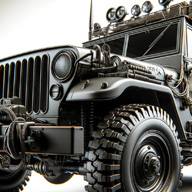 Deals & Savings
Deals & Savings Exclusive Military Discounts on Auto Parts at CARiD
- Saturday, 01 June 2024 17:24Hey everyone, it's Anar here, and I have some exciting news for our brave military personnel and their families. If you're in the military or have served, CARiD.com has got a fantastic deal just for you. It's their way of saying thank you for your...
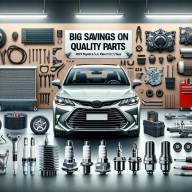 Deals & Savings
Deals & Savings Big Savings on 2021 Toyota Avalon 2.5L L4 Electric/Gas Parts at RockAuto
- Monday, 20 May 2024 13:08Hey there! I just stumbled upon some fantastic deals for your 2021 Toyota Avalon 2.5L L4 Electric/Gas on RockAuto, and I had to share them with you. If you’re looking to save some cash on quality parts, you’ve got to check these out. They’ve got...
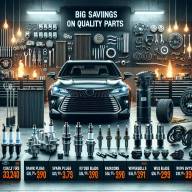 Deals & Savings
Deals & Savings RockAuto.com - Amazing Deals on 2021 Toyota Avalon 2.5L L4 Parts: Huge Savings on Essential Components
- Saturday, 18 May 2024 10:01Hey there! I just stumbled upon some fantastic deals for your 2021 Toyota Avalon 2.5L L4 on RockAuto, and I had to share them with you. If you’re looking to save some cash on quality parts, you’ve got to check these out. They’ve got everything from...
 Deals & Savings
Deals & Savings Top Brake Rotors at Low Prices - Shop Now | ANAR.PARTS
- Sunday, 17 March 2024 08:41Enhance Your Driving Safety with Premium Brake Rotors from ANAR.PARTS In the quest for automotive excellence and safety, the quality of brake rotors stands paramount. ANAR.PARTS , in partnership with Partsgeek.com , is proud to introduce an...
 Deals & Savings
Deals & Savings Discount Auto Mirrors USA - Upgrade Now | ANAR.PARTS
- Sunday, 17 March 2024 07:35Maximize Your Visibility on the Road with Discounted Side View Mirrors at ANAR.PARTS In the world of automotive maintenance and enhancement, ensuring your vehicle is equipped with the best possible parts not only guarantees safety but also enhances...

